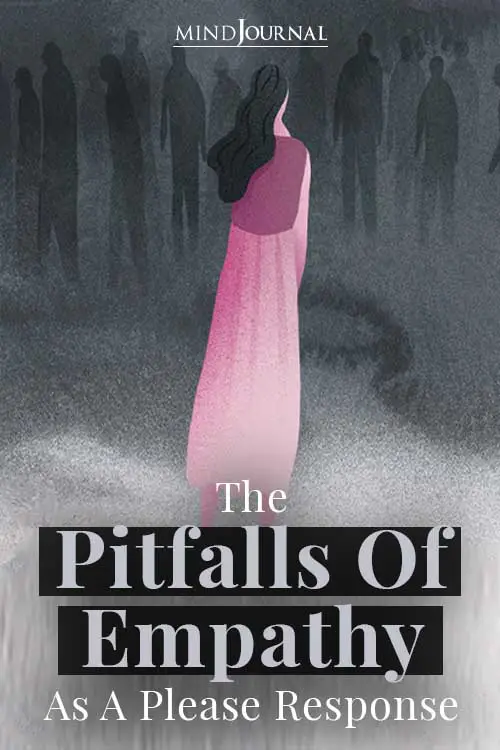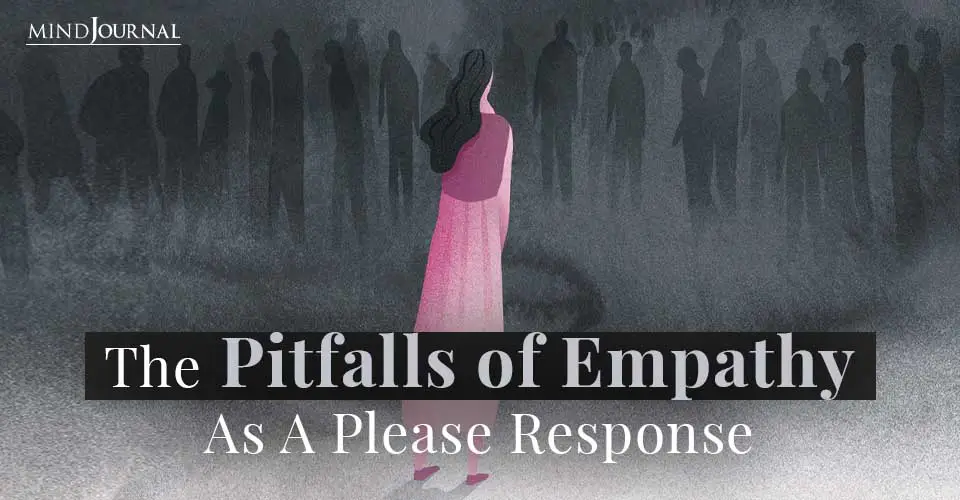Even though being kind, and empathetic are beautiful values to have, don’t you think that there are many pitfalls of empathy as well?
The ‘please’ or ‘fawn’ response is an often overlooked survival mechanism to a traumatic situation, experience, or circumstance.
Nonetheless, the ‘please’ response is a prevalent one especially with complex trauma or CPTSD, and is acted out as a result of the high-stress situations that have often been drawn out.
As any survival response; like flight, fight or freeze, a please or fawn response is to manage a state of danger or potential danger.
The please response is the most thoughtful and complex response to deal with as it encompasses monitoring and feeling into other people’s state of mind (often the aggressor) in order to anticipate a situation and respond by adapting and pleasing in order to evade confrontation or before a situation becomes aggravated.
It is also one of the most cumbersome and exhausting responses as it takes great resources to play through potential future scenarios.
Related: 10 Strategies To Protect Your Energy As An Empath
Fight, Flight, Freeze, and Fawn: The Difference between Empathy and the Fawn Response
A please response is not the same as empathy, and I think there is some confusion there. Healthy empathy is to be able to feel into other people’s situations without losing your sense of self and the importance of your own needs. With a please or fawn response you have given up a sense of self, a sense of healthy identity, and have taken on responsibilities that aren’t yours to carry. It is a survival response made in a time of need, but in the long run, you pay a hefty price for it.
Once emotional residue, related to your past, is contained, access to healthy empathy might be more readily available if your previous habitual response was a please response. Each survival response once contained, have their strengths to be harvested.
Surviving a Complex Trauma Situation by adapting to a Please Response
As mentioned briefly before; when you resort to a please response you take on responsibilities which aren’t yours to bear.
Let’s look at an example to clarify this behavior:
Clare grows up with a mother who has episodes of being suicidal and emotionally unstable. In her day to day goings, her mom is demanding, ambitious, and meticulously organized. In order to avoid confrontation and to assist the impossible neurotic episodes of her mom, Clare adopts the please response towards her. She anticipates her moods, tries to excel at school, and to meet her mother’s demands.
The ‘choice’ to please and adapt to her mom’s needs and ‘forget’ her own, is not done at a fully conscious level. It is a choice forged out of the best possible survival option to deal with what is at hand. It is made out of absolute necessity.
Related: 15 Ways To Stay Grounded And Protected For An Empath
Be a little kind to the child in you!
How are you exhibiting your please response, and in which area of your life does it show? Relationship, with your children, your work or with friends? Leave your comments below.
Originally appeared on Rolandbal.com
Printed with Prior Permission
Empathy is always good thing to have, but sometimes it can also have its downsides. Just like practically everything else in this world, there are a lot of pitfalls when it comes to empathy. Always remember that just like it is important to be kind to the world, it is equally important to be kind to yourself.
If you want to know more about the pitfalls of empathy, then check this video out below:









Leave a Reply
You must be logged in to post a comment.